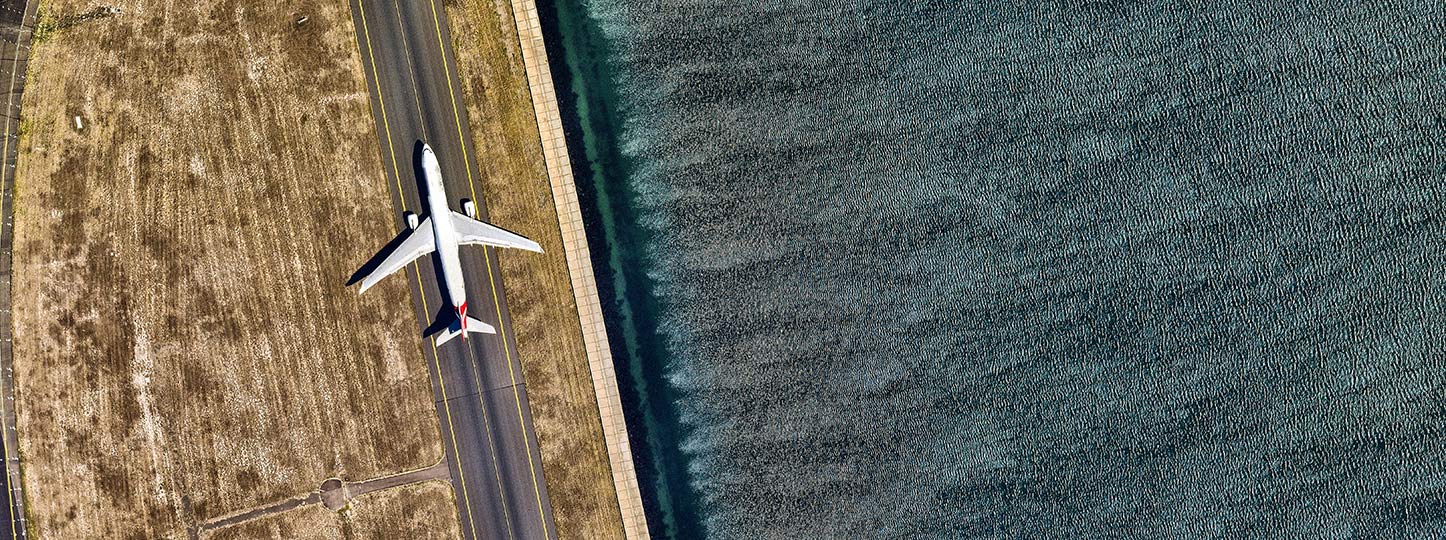
RMIT experts available for comment on Federal Government’s half-price flights
Aviation, consumer law and cultural economics experts from RMIT University are available to talk to media about the $1.2 billion stimulus package to get Australians spending on domestic holidays.
The nearly 800,000 half-price fares will be available to book from tomorrow (1 April).
Associate Professor Chrystal Zhang (0469 333 210 or chrystal.zhang@rmit.edu.au)
Topics: airline industry, airports, airline business models, route development, airline liberalisation, safety and traveller behaviour.
“Prices on each of the 10 routes included in the Federal Government’s stimulus package may vary significantly, ranging from just above $100 to more than $500, one way. Demand, time and day of flight, airline and cabin class impact fare prices.
“While each airline has its own money-making strategies, they all want to maximise the margin on each seat.
“Likely, only a limited number of half-price fares will be available for travel in the immediate few weeks after they go on sale, as airlines have justified grounds to optimise revenue.
“Travellers will have the best chance of getting a cheaper fare if they travel later in the eligible time frame (July, August and September) but avoid school holidays and weekends.
“Bargain hunters should look at routes like Darwin to Cairns, Adelaide to Gold Coast and Avalon to Gold Coast, with one-way fares likely to drop $50 to $80.
“Since the stimulus package was announced earlier this month, Qantas and Virgin Australia have said they won’t increase airfares but will pass the benefits on to consumers.
“Therefore, these airlines could be held accountable for their behaviour to ensure that travellers really benefit from the government’s policies and collectively contribute to reviving the economy.”
Associate Professor Chrystal Zhang is an airline industry expert in RMIT’s School of Engineering. She is a regular commentator on airline business models, route development, airline liberalisation, safety and traveller behaviour.
Dr James Gilchrist Stewart (0412 223 917 or james.stewart@rmit.edu.au)
Topics: consumer law, competition law.
“It’s unlikely Qantas and Virgin will inflate their prices, as airlines are directly benefiting from this scheme. The ACCC has been monitoring airfares eligible for the 50% discount and there’s a lot of scrutiny on airlines generally.
“However, with the end of JobKeeper coming at the same time as these cheap airfares, there’s a possibility accommodation providers and tourism operators may increase their pricing.
“The bigger question here is whether day trips, equipment hire and food and beverage suddenly get more expensive as tourism operators are desperate, especially as autumn and winter can be quiet at the best of times. Worst case scenario is a $4 beer could cost $12.
“Holidays are a lot more complicated now given the constant risk of COVID-19 border closures.
“Every airline, accommodation and tourism operator have their own terms and conditions – meaning if there’s a lockdown or similar, consumers must unravel multiple contracts for one holiday.
“The constant threat of border closures, like we are seeing with the Brisbane outbreak, may result in contractual frustration – where the contract can’t be completed as it’s out of everyone’s control.
“This is a potential consequence of the Federal Government trying to get people out of their home state and exploring Australia. There’s only one intrastate flight route at the minute – Adelaide to Kangaroo Island – whereas more flights within states might have been a better way to go."
Dr James Gilchrist is a lecturer in law at RMIT's Graduate School of Business and Law. His research interests include consumer and contract law.
Dr Meg Elkis (0410 323 057 or meg.elkins@rmit.edu.au)
Topics: behavioural economics, cultural economics, public policy evaluation, wellbeing and poverty.
“Cheap, subsidised airfares are all about psychology and our perception of value.
“We feel better about handing over money for a subsidised fare than the same amount for a normal fare.
“We will buy the subsidised ticket if we perceive value in the prospect of a holiday outweighs the negative prospect of the holiday voucher being cancelled due to COVID-19 restrictions.
“The anticipation of missing out will prompt consumers to risk the prospect of the holidays being cancelled. The discounted fares will appeal to those who may regret missing out.
“Those planning on travelling during this time anyway will revert to their original travel preferences, while those more adventurous will take advantage of the discounts or risk FOMO.
“Those who are safety-seeking and risk-averse in the first place will stay closer to home (safety) and start finding other ways to fulfil travel needs.
“Overall, there is little return on investment for the government. There will be a boost for travel, but only for those who were already predisposed to travel. There will be no impact on those who are risk-averse in these situations.”
Dr Meg Elkins is a Senior Lecturer in RMIT’s School of Economics, Finance and Marketing and the Behavioural Business Lab. Her research interests include cultural and development economics, wellbeing and public policy evaluation.
***
For other media enquiries, please contact RMIT Communications: 0439 704 077 or news@rmit.edu.au
- Business
Acknowledgement of Country
RMIT University acknowledges the people of the Woi wurrung and Boon wurrung language groups of the eastern Kulin Nation on whose unceded lands we conduct the business of the University. RMIT University respectfully acknowledges their Ancestors and Elders, past and present. RMIT also acknowledges the Traditional Custodians and their Ancestors of the lands and waters across Australia where we conduct our business - Artwork 'Sentient' by Hollie Johnson, Gunaikurnai and Monero Ngarigo.